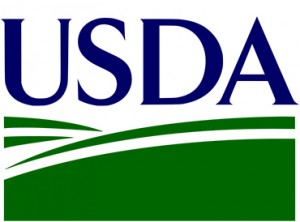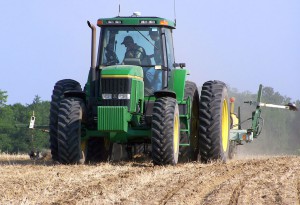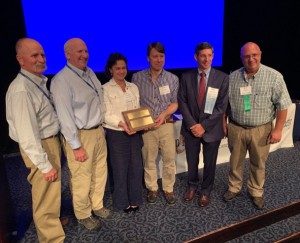 (Washington, D.C., September 3, 2019) – Agricultural producers can now enroll in the Agriculture Risk Coverage (ARC) and Price Loss Coverage (PLC) programs, two popular safety net programs, for the 2019 crop year. Interested producers must sign up for either program by March 15, 2020.
(Washington, D.C., September 3, 2019) – Agricultural producers can now enroll in the Agriculture Risk Coverage (ARC) and Price Loss Coverage (PLC) programs, two popular safety net programs, for the 2019 crop year. Interested producers must sign up for either program by March 15, 2020.
The 2018 Farm Bill reauthorized and made updates to these two USDA Farm Service Agency (FSA) programs. ARC provides income support payments on historical base acres when actual crop revenue declines below a specified guarantee level. PLC program provides income support payments on historical base acres when the price for a covered commodity falls below its effective reference price.
“The ARC and PLC programs, in combination with crop insurance, are the bedrock of the farm safety net for crop farmers and something I hear about frequently on the road,” said U.S. Secretary of Agriculture Sonny Perdue. “This exciting opportunity for enrollment in these programs marks the first time folks will have the opportunity to switch their elections since the 2014 Farm Bill was implemented. I am pleased to add that today’s announcement means our staff met yet another major Farm Bill implementation goal and they are continuing to move full speed ahead.”
Covered commodities include barley, canola, large and small chickpeas, corn, crambe, flaxseed, grain sorghum, lentils, mustard seed, oats, peanuts, dry peas, rapeseed, long grain rice, medium grain rice (which includes short grain rice), safflower seed, seed cotton, sesame, soybeans, sunflower seed and wheat.
Elections and Enrollment
Updated provisions in the 2018 Farm Bill allow producers with an interest in a farm to enroll and elect coverage in crop-by-crop ARC-County or PLC, or ARC-Individual for the entire farm, for program year 2019. The election applies to both the 2019 and 2020 crop years. If a 2019 election is not submitted by the deadline of March 15, 2020, the election defaults to the current elections of the crops on the farm established under the 2014 Farm Bill. No payments will be earned in 2019 if the election defaults.
For crop years 2021 through 2023, producers will have an opportunity to make new elections. Farm owners cannot enroll in either program unless they have a share interest in the farm.
Once the 2019 election and enrollment are completed, producers on the farm for 2020 can complete an enrollment contract for the 2020 crop year beginning Oct. 7, 2019 and ending June 30, 2020.
Although 2019 enrollment begins Sept. 3, 2019 and must occur first, a producer waiting until Oct. 7, 2019 to enroll is afforded the opportunity to enroll in either program for both 2019 and 2020 during the same office visit. During this time, farm owners have a one-time opportunity to update PLC payment yields that takes effect beginning with crop year 2020. If the owner accompanies the producer to the office, the yield update may be completed during the same office visit.
Web-Based Decision Tools
In partnership with USDA, the University of Illinois and Texas A&M University are offering web-based decision tools to assist producers in making informed, educated decisions using crop data specific to their respective farming operations. Tools include:
- Gardner-farmdoc Payment Calculator, the University of Illinois tool that offers farmers the ability to run payment estimate modeling for their farms and counties for ARC-County and PLC.
- ARC and PLC Decision Tool, the Texas A&M user friendly tool that allow producers to analyze payment yield updates and expected payments for 2019 and 2020. Producers who have used the tool in the past should see their user name and much of their farm data will already be available in the system.
Crop Insurance Considerations
Producers are reminded that enrolling in ARC or PLC programs can impact eligibility for some forms of crop insurance. Producers who elect and enroll in PLC also have the option of purchasing Supplemental Coverage Option (SCO) through the USDA Risk Management Agency (RMA). Producers of covered commodities who elect ARC are ineligible for SCO on their planted acres.
Upland cotton farmers who choose to enroll seed cotton base acres in ARC or PLC are ineligible for the stacked income protection plan (STAX) on their planted cotton acres. To be eligible for STAX coverage, producers must not enroll their seed cotton base acres into the ARC or PLC programs.
More Information
On December 20, 2018, President Trump signed into law the 2018 Farm Bill, which provides support, certainty and stability to our nation’s farmers, ranchers and land stewards by enhancing farm support programs, improving crop insurance, maintaining disaster programs and promoting and supporting voluntary conservation. FSA is committed to implementing these changes as quickly and effectively as possible, and today’s updates are part of meeting that goal.
For more information on ARC and PLC, download our program fact sheet (PDF, 880 KB) or our 2014-2018 farm bills comparison fact sheet (PDF, 1.7 MB). To sign up for the program, visit your FSA county office.








